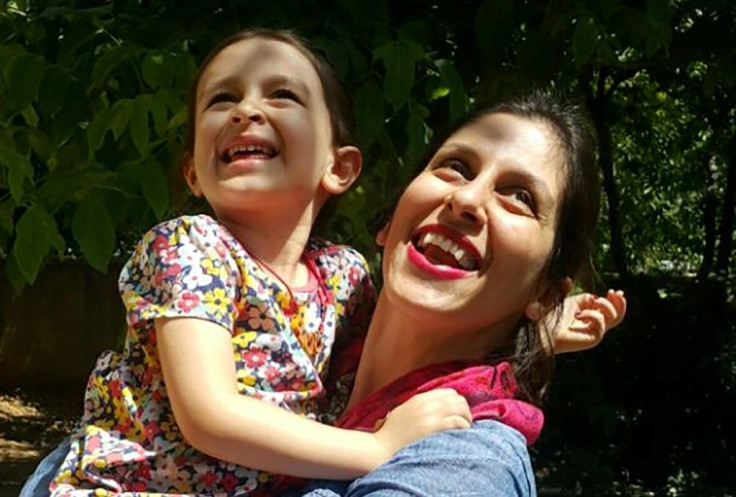UK Calls On Iran To Release Dual National After Sentence Ends
The UK government on Sunday called for the immediate release of a British-Iranian woman after her five-year sentence for sedition ended in Iran, as a new court summons caused further uncertainty about her fate.
Nazanin Zaghari-Ratcliffe, who has been under house arrest for months, had her ankle tag removed, giving her more freedom of movement and allowing her to visit relatives in Tehran.
But the 42-year-old dual national now faces another court appearance in Iran next Sunday, dashing hopes among her family, friends and supporters of an immediate return home.
Her husband Richard said she was "genuinely happy" at the development but that she remained a pawn in a diplomatic dispute between London and Tehran.
"She is having a nice afternoon, has turned her phone off and is not thinking about the rest of it. I'm a bit more guarded," he told Britain's Press Association news agency.
"It feels to me like they have made one blockage just as they have removed another, and we very clearly remain in the middle of this government game of chess," he added.
"She remains in harm's way."
Nazanin spoke to the family on Facetime on Sunday morning. Her sister-in-law Rebecca said she was "quite upbeat, quite pleased" and "very relieved" to be free from electronic monitoring.
But she said it was unclear whether the Iranian authorities would return her passport or whether she could be subject to further detention.
The family will not celebrate until she is on a plane home, she told Sky News television, adding: "There's a few more sleepless nights ahead of us."
Britain's Foreign Secretary Dominic Raab welcomed the removal of Nazanin's ankle tag but called her treatment in the Islamic republic "intolerable".
"She must be allowed to return to the UK as soon as possible to be reunited with her family," he wrote on Twitter.
British Prime Minister Boris Johnson echoed his remarks saying Zaghari-Ratcliffe's "continued confinement remains totally unacceptable".
He added that the UK would "continue to do all we can" to return her to her family.

Zaghari-Ratcliffe was detained while on holiday in 2016 and convicted of plotting to overthrow the Iranian government -- accusations she strenuously denied.
But her case, and those of other dual nationals, became the centre of a diplomatic dispute during the five years she has been separated from her husband and their young daughter Gabriella.
Antonio Zappulla, chief executive of her employer the Thomson Reuters Foundation, said he had spoken to her as she had coffee in Tehran.
"She was really pleased, she was very happy. I haven't heard her this way since I spoke to her when she came out of prison, and she was delighted... She's definitely in good spirits," he told AFP.
But he said the prospect of a second court case was a "dark cloud over her head", six months after she was told of a new indictment.
The authorities have yet to provide details or documents concerning the charges on which she was originally sentenced.
"I'm calling for the UK government to continue to intensify negotiations with the Iranian government," Zappulla said.
"Nazanin is really a token in a much larger game which involves the way things are going in different capitals, not just London," he added, emphasising that she was not working in Iran when she was detained.
Richard Ratcliffe told the BBC on Saturday that the case could "drag on and on" and his wife was a diplomatic hostage.
London has admitted it owes Iran up to ?300 million ($390 million) over a failed arms deal dating to the 1970s under the shah.
The couple's constituency MP in London, Tulip Siddiq, said Zaghari-Ratcliffe's first trip without her ankle bracelet would be to see her grandmother.
It was not immediately clear whether she is under any other restrictions.
In Iran, the news agency ISNA quoted Hojjat Kermani, who was described as her lawyer, as confirming his client's ankle tag had been removed.
He also said she would face further allegations of "propaganda against the system" at a revolutionary court on March 14.





















